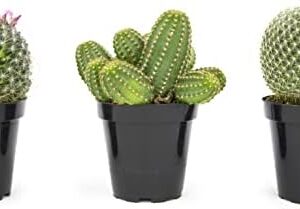So you’ve decided to start your very own garden from scratch – congratulations! Starting a garden can be a rewarding and fulfilling experience, but it can also be a bit overwhelming if you’re not sure where to begin. Don’t worry, though – I’m here to help! In this article, I’ll share some tips and advice to help you sow the seeds of success and get your garden off to a great start.
First things first: before you can start planting, you need to carefully consider the location of your garden. Most plants need at least 6-8 hours of sunlight per day to thrive, so choose a spot in your yard that receives plenty of sunlight. If you’re limited on space, don’t worry – you can still grow a garden in containers or raised beds on a sunny patio or balcony. Just make sure your chosen spot has access to water and is easily accessible for maintenance.
Next, you’ll need to prepare the soil for planting. If you’re starting from scratch, chances are you’ll need to amend the soil in your garden beds to ensure that it’s fertile and well-draining. You can do this by adding compost, aged manure, or other organic matter to the soil to improve its structure and nutrient content. You can also have your soil tested to determine its pH and nutrient levels, which will help you determine what amendments are needed.
Once your soil is prepped and ready to go, it’s time to start planning your garden layout. Consider what types of plants you want to grow, as well as how much space they’ll need to thrive. Will you be growing vegetables, herbs, flowers, or a combination of all three? Make sure to space your plants accordingly to give them room to grow and access to sunlight and water.
When it comes to selecting plants for your garden, be sure to choose varieties that are well-suited to your climate and growing conditions. Consider factors such as temperature, sunlight, and soil type when making your selections. You may also want to consider starting your plants from seeds or purchasing seedlings from a local nursery to get a head start on the growing season.
As you start planting your garden, be sure to follow the instructions on plant labels or seed packets carefully. Different plants have different requirements for planting depth, spacing, and watering, so it’s important to read up on each variety before you get started. Remember to water your plants regularly and keep an eye on them for signs of pests or disease, which can be common in newly planted gardens.
One of the most important aspects of successful gardening is regular maintenance. This includes watering, weeding, fertilizing, and monitoring your plants for signs of stress or disease. Make a schedule for when you’ll tend to your garden, whether it’s daily, weekly, or monthly, and stick to it to ensure your plants stay healthy and thriving.
Don’t be afraid to get creative with your garden design and personalize it to suit your tastes and preferences. Add decorative elements such as trellises, arbors, or garden sculptures to make your garden unique and inviting. You can also plant a mix of colors, textures, and heights to create visual interest and attract beneficial insects and pollinators.
Finally, don’t forget to enjoy the process of gardening and take pride in the fruits of your labor. Growing your own food or flowers can be incredibly rewarding, both physically and emotionally. Take the time to appreciate the beauty of nature and the satisfaction of nurturing living things from seed to harvest.
In conclusion, starting a garden from scratch can be a challenging but ultimately fulfilling endeavor. By following these tips and guidelines, you can sow the seeds of success and create a beautiful and bountiful garden that you can be proud of. So roll up your sleeves, dig in the dirt, and get ready to watch your garden grow!






